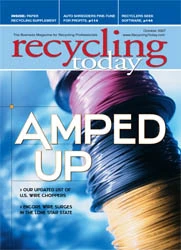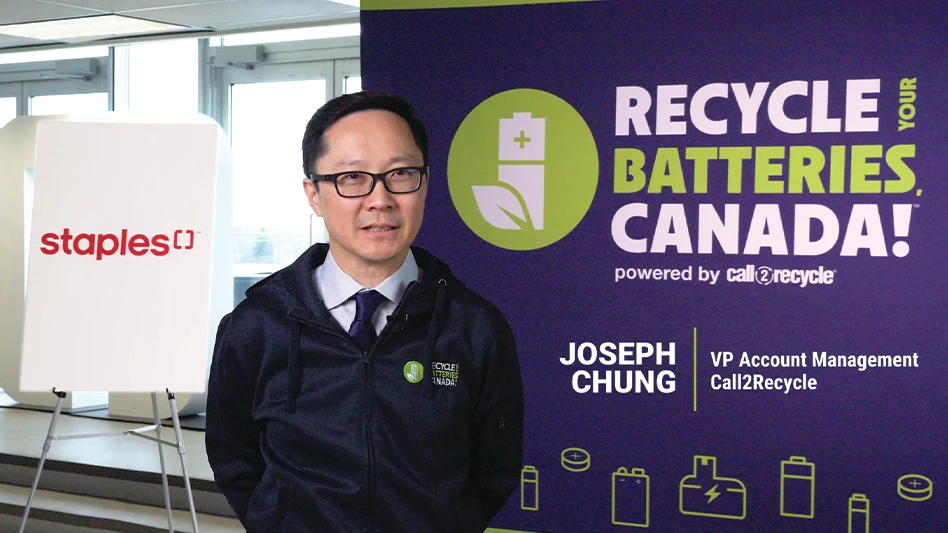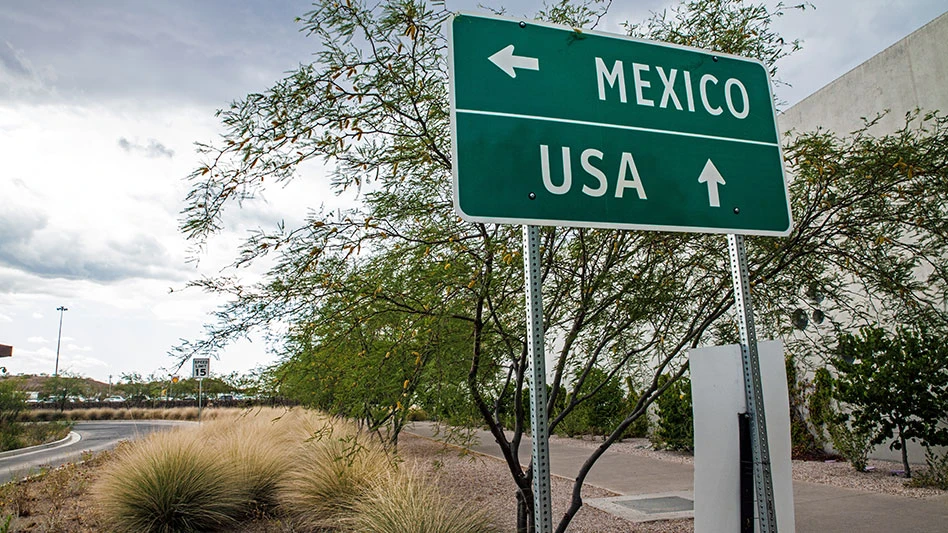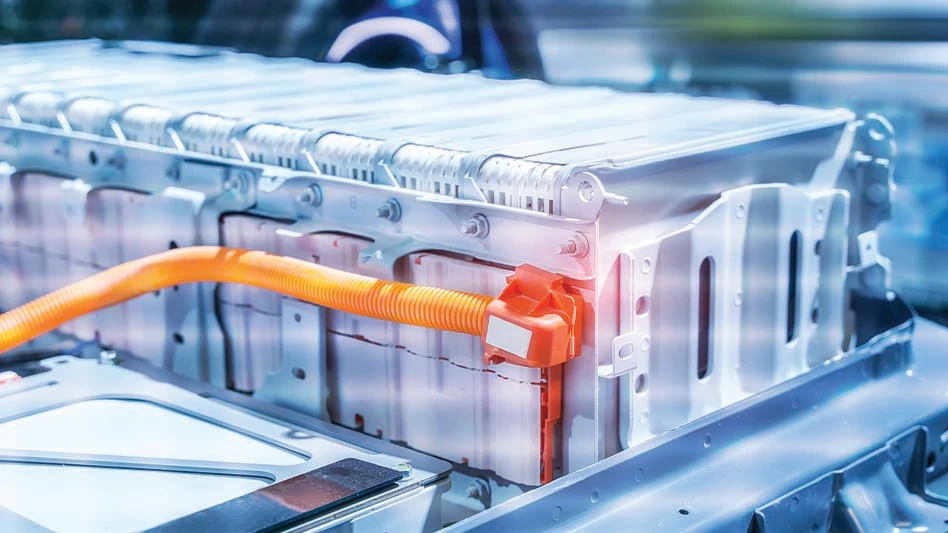When it comes to plastic packaging, Coca-Cola Co., Atlanta, carries considerable weight within the market, both figuratively and literally.
The company’s announcement that it intends to open a facility to process and consume PET bottles will almost certainly cause post-consumer plastics recyclers to consider how it affects them.
After years of what recycling advocates would probably term as sitting on the sidelines regarding the recycling of PET bottles in the United States, Coca-Cola announced in early September that it will invest $60 million in a plant to be located near Spartanburg, S.C., that will recycle post-consumer PET bottles into new bottles.
"We have set an ambitious goal to recycle or reuse all the plastic bottles we use in the U.S. market," says Sandy Douglas, president of Coca-Cola North America.
Coca-Cola will work with United Resource Recovery Corp. (UCRC), Spartanburg, to build a plant that can produce 100 million pounds of food-grade recycled-content PET annually. "The long-term sustainability of our business depends on our ability to ensure the sustainability of our packaging," says Douglas.
The 30-acre plant is on a time line to open in 2008 and to reach full production in 2009. The technology in place will be similar to plants that Coca-Cola has built or been a joint-venture partner in building in Mexico, Europe and Asia.
Where will the material come from? Coca-Cola says it hopes to boost the PET recycling rate through the creation of Coca-Cola Recycling LLC, which will be "dedicated to recovering and recycling Coca-Cola packaging materials used within the Coca-Cola system in the U.S.—including PET, aluminum, cardboard and plastic film."
Without disclosing details, a company news release says the new subsidiary "will be developing cost-efficient solutions for reclaiming used beverage containers and will establish centralized recycling centers throughout the U.S."
One partnership Coke intends to keep in place is with RecycleBank, Philadelphia, the municipal recycling service provider that offers incentive programs to households that participate in curbside recycling programs. An announced investment by Coca-Cola in RecycleBank "will support a national rollout of the RecycleBank program by 2009." Currently, RecycleBank operates in just a handful of markets, primarily in the mid-Atlantic states.
Certainly, current consumers of PET bottles must hope that Coca-Cola is able to dramatically improve collection before it ramps up its new plant. Sourcing supply is already a major task for Southeastern United States consumers such as Georgia-based Mohawk Industries.
The company consumes more than 200 million pounds of post-consumer PET each year to produce fabrics for carpet and carpet backing. "We buy about 215 million pounds per year of recycled bottles from all over the country and even bring some in from Mexico and Canada," Mohawk’s Phil Cavin told Recycling Today for a 2006 feature.
"We’ve been in a supply and demand crunch in the last four years or so," Cavin said at that time. "Asia is buying about 350 million pounds annually now—close to about one-third of what is baled here in the U.S. They are our largest competitor," Cavin said in the spring of 2006. "There are companies that would like to add capacity to use more recycled PET, but they are afraid to do so because there is such a bottle shortage."
Like Coca-Cola itself, Pat Dempsey of the Progressive Bag Alliance, www.progressivebagalliance.com, is optimistic that publicity surrounding Coke’s announcement and investment can bring out more material. "Hopefully, this will raise awareness," says Dempsey. "Any company or organization that puts into their infrastructure any kind of recycling or sustainability, that’s a good thing."
On the industrial plastics side, markets are more stable. A recycler in Pennsylvania notes that volumes generated in September began picking up from a summer slowdown. "We get a little busier in the third quarter [because of] packaging materials such as film and polystyrene," he notes. "Manufacturers producing for the holiday season get busy in the third quarter preparing to pack things that have been produced the last two quarters."
(Additional news about plastics recycling markets is available online at www.RecyclingToday.com.)
PETOSKEY PLASTICS OPENS NEW HQPetoskey Plastics has relocated its corporate headquarters from its manufacturing facility to a newly renovated office building in downtown Petoskey, Mich.
The new headquarters will house Petoskey’s executive team, marketing, sales, human resources and accounting functions. The company will occupy all three stories of the building with 24 associates working in the new space.
The plastics film and bag manufacturer purchased the 11,000-square-foot building from CRC Holdings LLC in 2006 and recently completed $1.5 million in renovations and improvements. With its location at the corner of Petoskey and Bay Streets, the Petoskey Plastics Building will now serve as a downtown landmark, according to the company.
The structure is also a visible tribute to the company’s continued growth and success, says co-founder and President Paul C. Keiswetter. "We are growing locally and selling globally," says Keiswetter. "Our new headquarters not only signifies our robust growth, but also our commitment to the Petoskey area. With locations in Michigan, Indiana and Tennessee, we’re proud to call Petoskey home and will continue to grow our business here."
The company’s manufacturing plants are in Petoskey (its offices had previously been at this plant); Hartford City, Ind.; and Morristown, Tenn.
Founded in 1970, Petoskey uses plastic scrap as feedstock in the manufacturing of engineered plastic bags and film for the automotive, recycling, food, retail and packaging industries.
IN THE BAGA Canadian retail chain has announced an initiative to act as a collection point for plastic grocery bags.
Loblaw Cos. Ltd., Brampton, Ontario, has introduced its PC Green Plastic Bag Recycling Program at Ontario stores in municipalities where curbside plastic bag recycling is not available. The company estimates that more than half of the municipalities in the province of Ontario will be included.
This initiative is expected to divert more than 50 million plastic bags from Ontario landfills by urging consumers to return plastic grocery bags to stores and deposit them in new recycling receptacles, according to a report on Retail-Digital.com.
The receptacles are in the vestibules of 60 stores throughout Ontario, with additional stores launching the program in the near future, according to the retailer. The pilot test suggests that more than 16,000 plastic bags will be recycled per store weekly.
Get curated news on YOUR industry.
Enter your email to receive our newsletters.
Explore the October 2007 Issue
Check out more from this issue and find your next story to read.
Latest from Recycling Today
- Recycled steel price crosses $500 per ton threshold
- Smithers report looks at PCR plastic’s near-term prospects
- Plastics association quantifies US-EU trade dispute impacts
- Nucor expects slimmer profits in early 2025
- CP Group announces new senior vice president
- APR publishes Design Guide in French
- AmSty recorded first sales of PolyRenew Styrene in 2024
- PRE says EU’s plastic recycling industry at a breaking point





